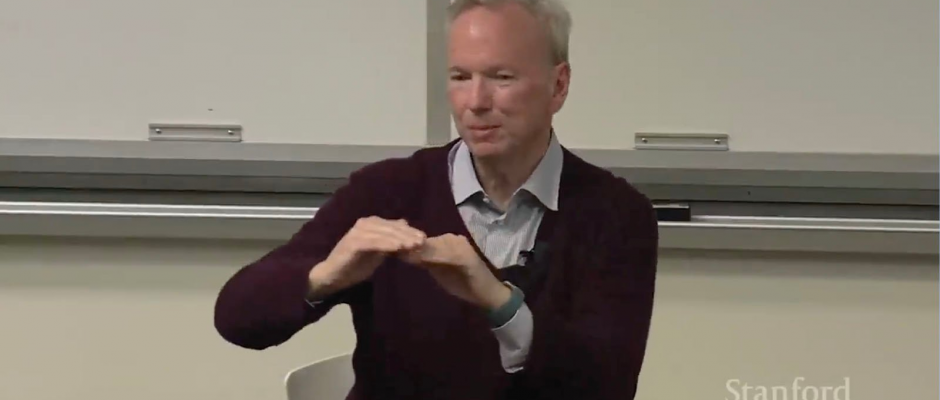When I think about this year, not many things come to mind. Besides some trips and definitely more cycling, running, and hiking, the highlight was probably my parents’ visit and spending a few weeks together. That was fun! Nothing has changed about my dreams: peace for Ukraine is all I want for the coming year.
Category: links
It's not often that you get to hear what people with such experience and horizons think about the future of both the industry and us as a human community. A recording of the speech appeared somewhere in Internet recently, and for those who are interested here is the full transcription of it. Highly recommend to review. I will just summarise a few main ideas and his vision.
This my photo reflects the feeling of the whole past year well very well. It’s gloomy, it’s cold, and we, as a small group, are trying to stick together.
After a long break, I’m going to try to get back to summarizing what I’ve been learning during the month.
One of the biggest things that happened to me last year was the move to Mac. After dozens of years of working with Windows, then Linux, many customizations, and convenient software that allowed me to work almost at the speed of thought, I was a little afraid that it would take a long time before I could achieve the same comfort and speed. After two months, I can confidently say that life on the mac is existing. Not always, however, …
For those who are not a programmer, but by the will of fate, thrown into our industry, I can share a secret: writing code is easy. The code is difficult to read and maintain, but easy to write. Writing the code is much easier than writing an essay in natural language. The programming language is primitive. Several dozen word constructions of which only a small set of what is available is used. This is why programmers are so eager to …
This is the four and last part of my discovery different tools, tricks and practices for making programmers more effective. Again. Learn shortcuts Use all the power of your shell should save a lot of time. Make sense to spend some time learning it. Here is a list of a few most commonly used. Ctrl + L Clears the screen; Ctrl + C Terminate the command; Ctrl + R Search command history backwards; Ctrl + A go to the start of the command line; Ctrl + E go to the end of the command line; …
Third part of my research of different tools and practices that makes us more productive. Use if you can statically typed language (TypeScript, Flow, Java, C#, C++, Kotlin, Swift, Scala, Haskel, etc). It has the hidden power of your productivity and gives you a lot of freedom to refactor your code. REST client in IntelliJ’s products and vscode allows you test requests right from the code. Learn some simple editor well (ideally vi because it’s available everywhere). Learn regular expressions …
This is the second part of my research about productivity practices, tricks, and technics. Learn to touch-type properly. Practice with keybr.com, klavogonki.ru. Speed up your repeat rate. Set up shortcuts for commonly used apps like browser, terminal, IDE, etc. If you use multiple languages on your PC, set up a shortcut for every language or use caps lock as a language switcher. Learn shortcuts and improve your productivity. A few good places to start: cheatkeys for win, mediaatelier for mac Launchbar, …
For a long time, I am looking for a way to be more productive as a programmer. I decided to organize in structure valuable ideas and practices I found. Hopefully, they will be useful for you too. Below is the first part: habits. Write. Write documentation, notes, your ideas, and useful tips. Here is the list of most popular tools you can use: Notion/Evernote/OneNote/bear.app emacs/orgmode Markdown files as a basis for something more complicated like, for example Zettelkasten Focus on …







